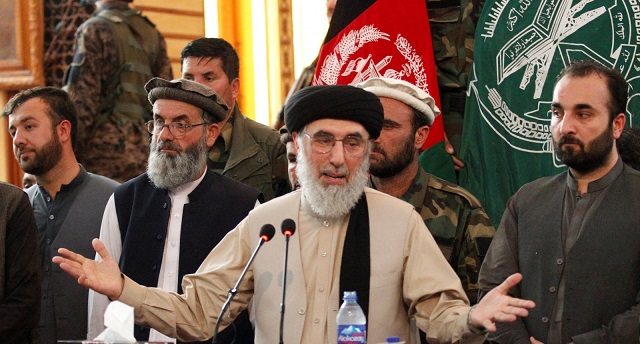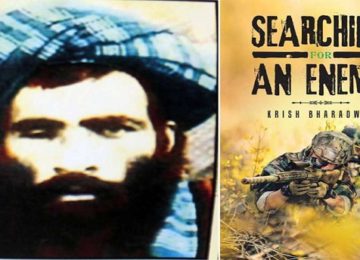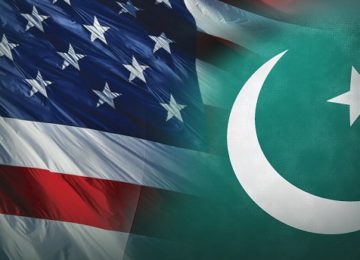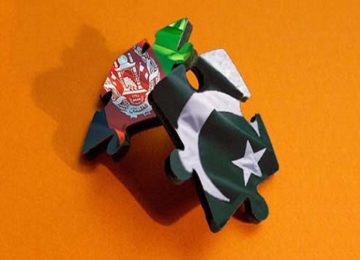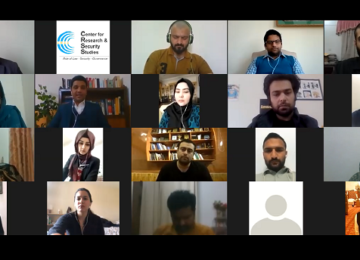Hezb-e Islami has run into a legal conflict over registration. This hampers efforts to re-unite the party’s various factions after the return of its ‘historical’ leader, Gulbuddin Hekmatyar, and in the run-up to the elections planned for 2018. It also reflects internal dynamics between a more pragmatic wing of Hezb-e Islami, which is participating in government, and the ex-insurgent faction led by Gulbuddin Hekmatyar, who is struggling to re-assert full control over the party.
Hezb-e Islami, a major former mujahedin party that recently made a comeback on the political stage, has run into unexpected trouble. One of its factions, which has operated in Afghanistan since 2005, has refused to fully and publicly commit to party unity following the return of the party’s historical leader, who is trying to regain his grip on it.
The issue of party unity had featured high on the agenda of a large-scale gathering (media report here) held between 8 and 10 November 2017 in Kabul and chaired by Hezb’s historical leader Gulbuddin Hekmatyar. It was also a major theme in Hekmatyar’s opening speech. The conference was designed to mark the party’s transition from being one of the post-2001 insurgent groups to a united, political actor on the national scene. But the Hezb wing led by former economy minister Abdul Hadi Arghandiwal has so far refused to follow. Both sides say negotiations are ongoing.
Hekmatyar returned to the country in May 2017 (AAN background here), after he concluded a peace deal with the government in the name of his party in September 2016 (AAN analysis here). Following the peace deal, several factions of Hezb that had emerged during the party’s post-2001 split into an insurgent wing and several factions politically active in Afghanistan (AAN background here) had committed to reuniting under the party’s historical name Hezb-e Islami-ye Afghanistan (HIA; Islamic Party of Afghanistan) with Hekmatyar as the party’s amir (leader).
At the conference, Hekmyatyar did not speak of “factions” but of “different offices and addresses” that needed to be re-united in an “organisational renewal.” He added that the groups under these ‘addresses’ had committed to “close their doors as soon as a central office of the party was established” which now was the case. Hekmatyar mentioned two of these factions, namely the faction that had been led, until recently, by the late Khaled Faruqi, (1) and the Union of Hezb-e Islami Councils (more about these groups in this AAN dispatch). This leaves Arghandiwal’s faction and the United Islamic Party, led by Wahidullah Sabawun, still outside the party. (Hekmatyar did not mention either by name.) Sabawun told AAN on 25 November that he had not participated in Hekmatyar’s congress, continues to run his own party and “for the time being” does not intend to join Hekmatyar.
Representatives of Hekmatyar’s wing told AAN that a Memorandum of Understanding had been signed by the leaders of all factions after the conclusion of the peace deal. Hezb Central Council spokesman Fazl Minullah Mumtaz told AAN, that “all had agreed that Gulbuddin Hekmatyar is the party’s amir and that Hezb is united, without any factionalism. Arghandiwal has also signed this agreement.” Mumtaz declined to share a copy with AAN, but Abdul Jabbar Shelgarai, a member of the Arghandiwal group (and advisor to Chief Executive Abdullah Abdullah), confirmed to AAN that his group considers Hekmatyar “the accepted leader of the people of Afghanistan and the leader of Hezb-e Islami.”
The dissidents’ position
On 9 November, Arghandiwal told Radio Azadi, the Afghan service of Radio Free Europe/Radio Liberty, that “until now, unity has not come” and that he “hoped that an agreement could be reached.” He also pointed out that Hezb was registered under his name with the Ministry of Justice (MoJ). This was interpreted by observers as a bargaining chip in an attempt to avoid handing over full control of the party to Hekmatyar. Arghandiwal added that he would accept “anyone who is elected leader by Hezb”. A leader was not, however, elected at the November gathering.
An MoJ spokesman was quoted as confirming on 13 November that a party by the name of Hezb-e Islami had already been registered by Arghandiwal, and that the activity of Hekmatyar’s wing “could be illegal”. This statement was quickly retracted. (Incidentally, the current justice minister, Abdul Bassir Anwar, is a member of Arghandiwal’s Hezb faction.) Hezb/Hekmatyar spokesman Mumtaz had immediately countered it, arguing that the National Unity Government (NUG) had concluded the peace agreement with Hezb-e Islami-ye Afghanistan under this name, indirectly suggesting that this implied the NUG’s recognition of Hekmatyar’s faction.
While there was no full leadership election at the 8-10 November Kabul conference, a number of other party positions were filled. Nader Afghan, a Hezb/Hekmatyar spokesman, told AAN that the 3,000 participants of the conference elected the High Central Council consisting of 500 persons which, in turn, elected among them a 100-member High Decision-Making Council (De tasmim ali shura) that, between congresses, would take all decisions concerning the party (see also here). This council would have to elect a 15-member Executive Council (De ejraiye shura). The candidates for membership would be introduced to the Decision-Making Council by the party leader. “The announcement of the election for leadership of the party and the provincial leaders will also be the job of the executive committee,” he added.
Nonetheless, there was no word at the conference about the election of the party’s amir. The party’s constitution (asas-nama), however, also provides for the amir to be elected in a “free, direct and secret vote (…) with the participation of the party’s officials and members.” According to this document (in the author’s archive), the amir is responsible to the party’s central council.
Arghandiwal was absent from the Kabul conference (see media report here), as were other leading Hezb politicians who had been active in Afghanistan for years before Hekmatyar’s return. This included Maulawi Ataullah Ludin, who as an MP between 2005 and 2010 was considered Hezb’s parliamentary leader (he also was a deputy head of the High Peace Council and governor in his home province Nangrahar); Abdulrauf Ibrahimi, the current speaker of the Wolesi Jirga; Eng Muhammad Khan, the second deputy Chief Executive; MPs Eqbal Safi (Kapisa) and Haji Almas (Parwan); former minister Naser Durrani; and leadership members Mawlawi Sarferaz and justice minister Anwar.
Shelgari told AAN that they had not attended the conference because some of their ideas for the party’s reunification “were not accepted” and they had not reached an agreement by the opening of the congress. Officials of both sides told AAN they were not able to share what the conflict is about in detail. A member of Arghandiwal’s office, however, told AAN on the condition of anonymity that there were still a number of armed people present in Hekmatyar’ group who continue to participate in the insurgency, which was “against Afghanistan’s political parties law.”
Hezb and disarmament
AAN has reported previously that “Hezb-e Islami has been a fading insurgent group in recent years” due to a “shortage of resources and a near-absence of central command which could supply [its] fighters and provide reinforcements.”
But some Hezb commanders are still active at a local level. Despite a ceasefire declared by the Hezb leadership in September 2016, some have refused to lay down their arms, for example in Laghman, Baghlan and Maidan-Wardak; read also here and see this video, in Pashto, from an undisclosed location, likely in Eastern Afghanistan).
Over several months, Afghan media reported on the “tyranny” of a Hezb-e Islami commander, Bashir Qanet, in Takhar’s Chah Ab district (here and here) against whom reportedly an arrest warrant had been issued after an attack on a gathering in a local mosque, which resulted in four people killed and nearly 30 others injured. The province’s police chief had told Afghan media that Qanet had 1,000 militia men under his command and that the “police have no capability to detain him.” In a Hezb statement, quoted here, Hekmatyar did not disown the commander. According to another media report, Roqiya Nayel, an MP from Ghor province, has alleged that Hekmatyar’s party illegally distributed hundreds of weapons in less than a year to loyal followers and that armed men affiliated to Hekmatyar walked freely in the province’s centre, Chaghcharan. She urged the government to interdict the armed men who have repeatedy harried the province’s civilian population.
There were also reports of land grabbing and illegal mining by Hezb commanders in Baghlan.
In August, Hekmatyar had reportedly stated that the disarmament of his party’s fighters was currently “not on the government’s agenda” and that the fighters would keep their weapons until the government’s security forces were able to ensure their security. This position has been confirmed by Ahmad Farzan, the official responsible for the post-peace deal disarmament in the High Peace Council secretariat.
At the same time, there were allegations of Hezb members being killed in northern Afghanistan as a result of “collusion” between local officials and the Taleban. Indeed, a number of Hezb commanders have been assassinated, for example in Baghlan and in Logar. Also, a former secretary of Hekmatyar was killed in Peshawar in what could have been tit-for-tat killings between Hezb and the Taleban.
Key Hekmatyar positions at the party conference
The exact status of Hezb’s Kabul gathering remains unclear. Was it a full-scale party congress, to be held frequently according to the party’s constitution, including new elections for a new party leadership after Hekmatyar’s return, bringing in all factions that existed inside Afghanistan before? Or was it something lesser, albeit still significant as the party’s first convocation to be held in the country after Hekmatyar’s return and the peace deal? The official title of the event was “De stere markazi shura tarikhi ghunda” (the High Central Council’s historical gathering).
The conference attracted widespread attention and was discussed in the Afghan public and the media that ran some relatively short articles. At the same time, it was severely underreported, including by Hezb’s own media, and few details about what was discussed and what was decided have emerged. Hezb’s main newspaper Shahadat only carried a short report about the opening day and then ran less than three lines about each of the following two days (see example here) (2); Hezb had announced in advance, however, that two of the three days would be closed to the public. (Hekmatyar’s speech on day one can be found on Youtube.) Drawing on these reports and the speech we summarise those areas of debate at the Kabul meeting most relevant for the current political discussion in Afghanistan.
On elections
In his opening speech at the conference, Hekmatyar supported the holding of parliamentary and district council elections on the date envisaged so far, on 7 July 2018 (see AAN analysis). He criticised attempts to postpone the polls; a number of political parties, he alleged, feared his party and were trying to create hurdles for the elections. He demanded a redrawing of the electoral constituencies and called for the country’s ‘more than four million refugees’ to be granted the right to vote. He said further that “foreigners should not interfere in the elections,” but could “oversee [the process].” Before the conference, the party had suggested that, “instead of changing figures and appointing new officials” in the electoral commissions, a council should be formed from political party representatives and other influential figures to oversee the elections process.
Hekmatyar reportedly told his supporters that the next elections would “bring a basic change in the country’s destiny.”
On the political system
Hekmatyar declared his party’s support for the current government, adding there was no proper alternative to replace it – distancing himself from other political forces demanding an interim government (AAN background here). He also reiterated its commitment to the 2016 peace agreement with the government and called on the Taleban to follow this example.
He added that “if the Taleban agree to talks, we will support all their legitimate and reasonable demands.“
On the ‘ethnic character’ of the current war
Hekmatyar’s statements about the allegedly ethnic character of the current fighting created, in particular, a hot public debate including widespread condemnation, among others, in the media, a presidential spokesman, the Chief Executive and number of MPs and political commentators (media reporting here). Afghan ToloNews quoted him as saying:
War is ongoing in every part of Afghanistan. This is the war which continued in the past. A big number of Ghor residents are involved in this war. Sit with them and ask them who is involved in this war? It is between two ethnic groups! In Taiwara, the conflict is not between security forces and insurgents; it is between two ethnic groups. It is the same in Kunduz, in Baghlan, in all northern parts of the country. The real situation of the war is like this across the country.
Hekmatyar called such reports “misinterpretations” and accused the media of working in the interest of foreigners and Hezb’s enemies.
Conclusion
Arghandiwal’s public refusal to join hands with and subordinate himself to Hekmatyar before the much promoted Kabul party conference was an embarrassment for the party amir, known for his “absolutist leadership style” (AAN background here). The Hezb leadership around Hekmatyar has obviously underestimated the depth of the differences between its own ex-insurgent wing and the veteran party leaders who had participated in the governments of presidents Hamed Karzai and Ashraf Ghani as well as carrying out duties as provincial and district governors or sitting in parliament. (3) Indeed, Arghandiwal’s faction had made its peace with the former main mujahedin rival, Jamiat-e Islami, and joined a coalition around its candidate Abdullah Abdullah, the current government’s Chief Executive, while Hekmatyar still considers Jamiat a rival.
Four long-time Afghan observers of the country’s political scene told AAN that above and beyond the members and sympathisers of Hezb, Pashtuns in particular had hoped that Hekmatyar’s return would bring about positive changes to the political system – but now widely feel let down. The observers explained, using almost similar language, that the myth of the absent guerrilla leader Hekmatyar had been punctured by his statements on the ‘ethnic character’ of the war as it reflected a mind stuck in war-time factional thinking. One also said that, in the eyes of many Afghans, he has dropped his often-repeated position that he would only return to the country after foreign troops had left. (Later he modified this to the demand that there should be a timetable for their withdrawal.) In comparison, they agreed, the Arghandiwal faction represented – as one of them put it – a “more moderate tendency within Hezb” and the larger Islamist movement.
Hekmatyar’s and Arghandiwal’s factions are now trying to play down their rift in public and keep cards close to their chests. But the rift clearly hampers efforts to re-unite the party’s various factions under its ‘historical’ leader, Hekmatyar, who has explicitly set course on winning the next parliamentary elections.
How the party conference – or congress? – was handled and how the elections of Hezb’s leading bodies were conducted (or not) is not untypical for Afghanistan’s political parties. There is a general lack of transparency of how they determine their leadership bodies or leaders – namely behind closed doors and through a succession of limited councils, not by a general election of elected delegates to a congress. The leader principle still dominates. (As Kabul daily Hasht-e Sobh quipped in its 5 November issue, Arghandiwal’s party has also failed to hold a congress since being elected leader by a party council in mid-2006.)
The potential legal conflict over who is the registered leader of Hezb also points to another weakness of the political system in Afghanistan. Although political parties have not been given a visible role in it, they are mobilisation platforms for individual leaders who would ‘delegate’ members into political offices as Afghan governments tend to be, all but officially, coalition governments that involve party representatives. (This is particularly the case with the NUG, whose twin camps – that of President Ghani and Chief Executive Abdullah – are coalitions in their own right.) As a result, now a ministry led by a member of one of the two quarrelling Hezb factions might find itself in the situation, if Hekmatyar and Arghandiwal do not find a compromise, where it has to decide on the legality of their claims. This is clearly a conflict of interest that could have easily been avoided if one of the long-standing recommendations for the reform of the Afghan electoral institutions had been heeded: to put party registration under a neutral body. (4)
(1) Faruqi was the first leader of the Hezb-e Islami wing registered in post-Taleban Afghanistan, but replaced by Arghandiwal in 2007 as a result of a party conference. He did not recognise this change of leadership and continued separate political activities with his supporters.
(2) There are currently two versions of Shahadat. The print version that officially appears on a weekly basis, but in practice more irregularly, is run by the Arghandiwal faction. The online version that is updated daily is controlled by supporters of Hekmatyar. The Arghandiwal group also publishes a bi-monthly magazine, Shafaq.
(3) According to government statistics seen by AAN, Hezb (both factions) won 18 per cent of the seats in the 2017 elections for the three-member leadership bodies of the 34 Provincial Councils (these elections are held annually), making it the second strongest by this count, after its long-time rival, Jamiat-e Islami (20 per cent).
(4) See this recommendation repeated in a 2015 USIP assessment (here, p3).
By Special Arrangement with AAN. Original link.
Disclaimer: Views expressed on this blog are not necessarily endorsed or supported by the Center for Research and Security Studies, Islamabad.



